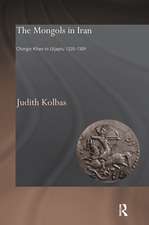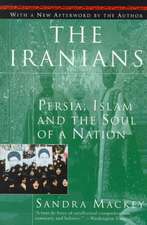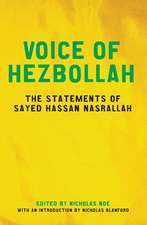The Cohesion of Saudi Arabia (RLE Saudi Arabia): Evolution of Political Identity
Autor Christine Helmsen Limba Engleză Hardback – 9 feb 2015
First published in 1981 and based on extensive new research data, this is the first study to examine more than simply a political or diplomatic history of Saudi Arabia, and concerns itself with the attitudes and perceptions of the Arabs themselves towards political initiatives of that period.
| Toate formatele și edițiile | Preț | Express |
|---|---|---|
| Paperback (1) | 190.88 lei 6-8 săpt. | |
| Taylor & Francis – 28 sep 2016 | 190.88 lei 6-8 săpt. | |
| Hardback (1) | 526.81 lei 6-8 săpt. | |
| Taylor & Francis – 9 feb 2015 | 526.81 lei 6-8 săpt. |
Preț: 526.81 lei
Preț vechi: 791.14 lei
-33% Nou
Puncte Express: 790
Preț estimativ în valută:
100.80€ • 105.53$ • 83.41£
100.80€ • 105.53$ • 83.41£
Carte tipărită la comandă
Livrare economică 05-19 aprilie
Preluare comenzi: 021 569.72.76
Specificații
ISBN-13: 9781138845763
ISBN-10: 1138845760
Pagini: 322
Dimensiuni: 156 x 234 x 23 mm
Greutate: 0.57 kg
Ediția:1
Editura: Taylor & Francis
Colecția Routledge
Locul publicării:Oxford, United Kingdom
ISBN-10: 1138845760
Pagini: 322
Dimensiuni: 156 x 234 x 23 mm
Greutate: 0.57 kg
Ediția:1
Editura: Taylor & Francis
Colecția Routledge
Locul publicării:Oxford, United Kingdom
Cuprins
Part 1. Internal Factors Influencing the Evolution of Political Identity in Central Arabia 1. Shifting Balances: Interaction of Social and Environmental Factors 2. Al Wahhab and Al Saud: 'Church' and 'State' 3. The Ikhwan: Badu Answer the Wahhabi 'Call to Unity' 4. The Al Saud and Policies of Islamic and Non-Islamic Taxation Part 2. External Factors Influencing Attitudes to Politics, Political Structures and Authority During the Post-World War 1 Mandate Period 5. Phenomena of 'Nation-state' and 'Border': Transition from Ottoman Territories to Modern Middle East State System 6. Expansion of Al Saud Authority 1918—1926: Territorial Conflicts and Border Delineation 7. The Northern Frontier 1926—1929: Britain and the Ikhwan Challenge Saudi Authority 8. The Ikhwan Rebellion 1929: Suppression of Internal Dissent Coincides with the Acceptance of Fixed Borders
Descriere
Saudi Arabia is no longer regarded as quite the invincible pillar of Islam it so recently seemed. Its authority within the Islamic world has been challenged by the Ayatollahs in Iran and its dominant position within Opec has been seriously eroded. Most importantly, the dramatic assault on the Mosque at Mecca has raised serious doubts about the i















